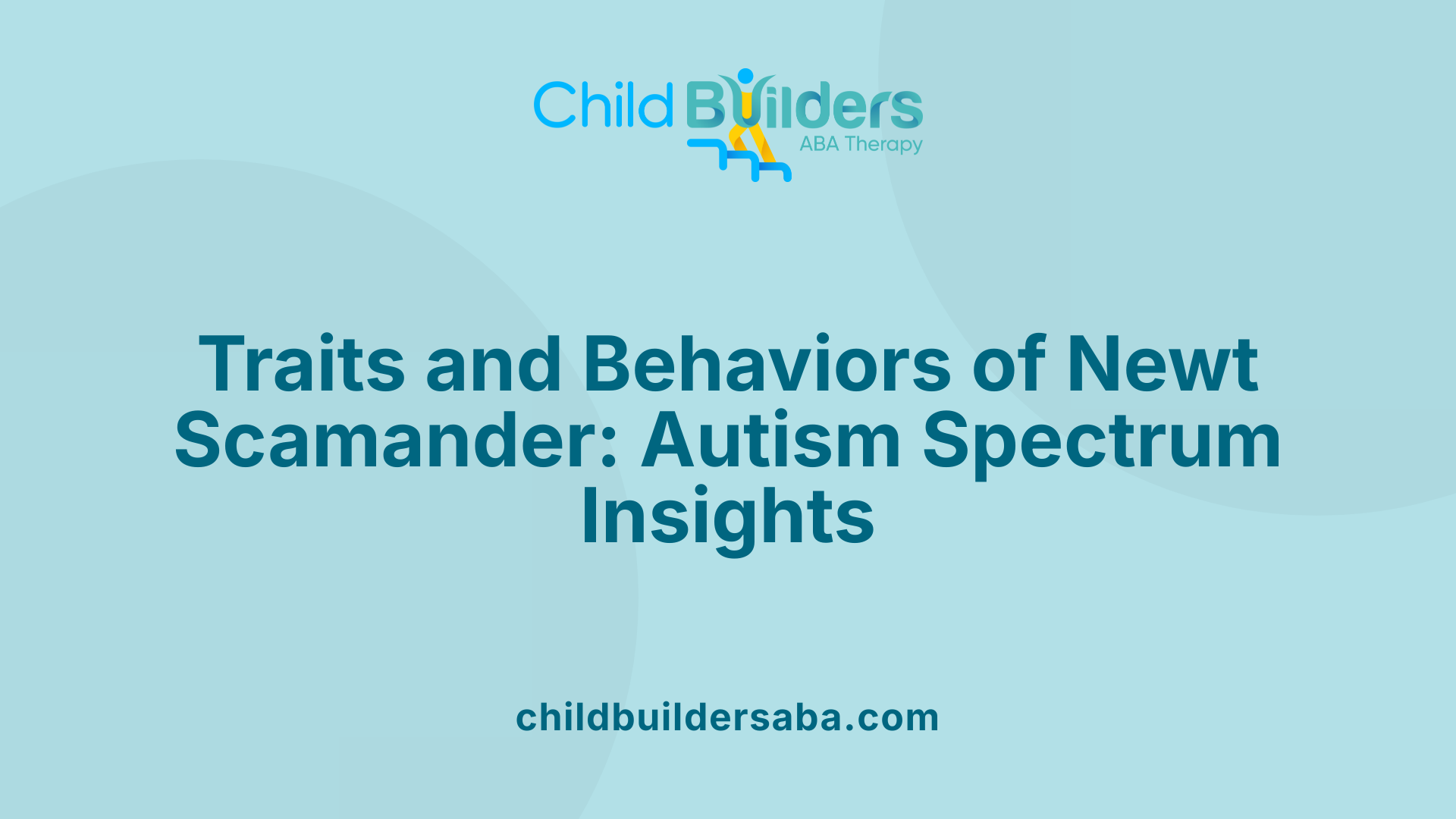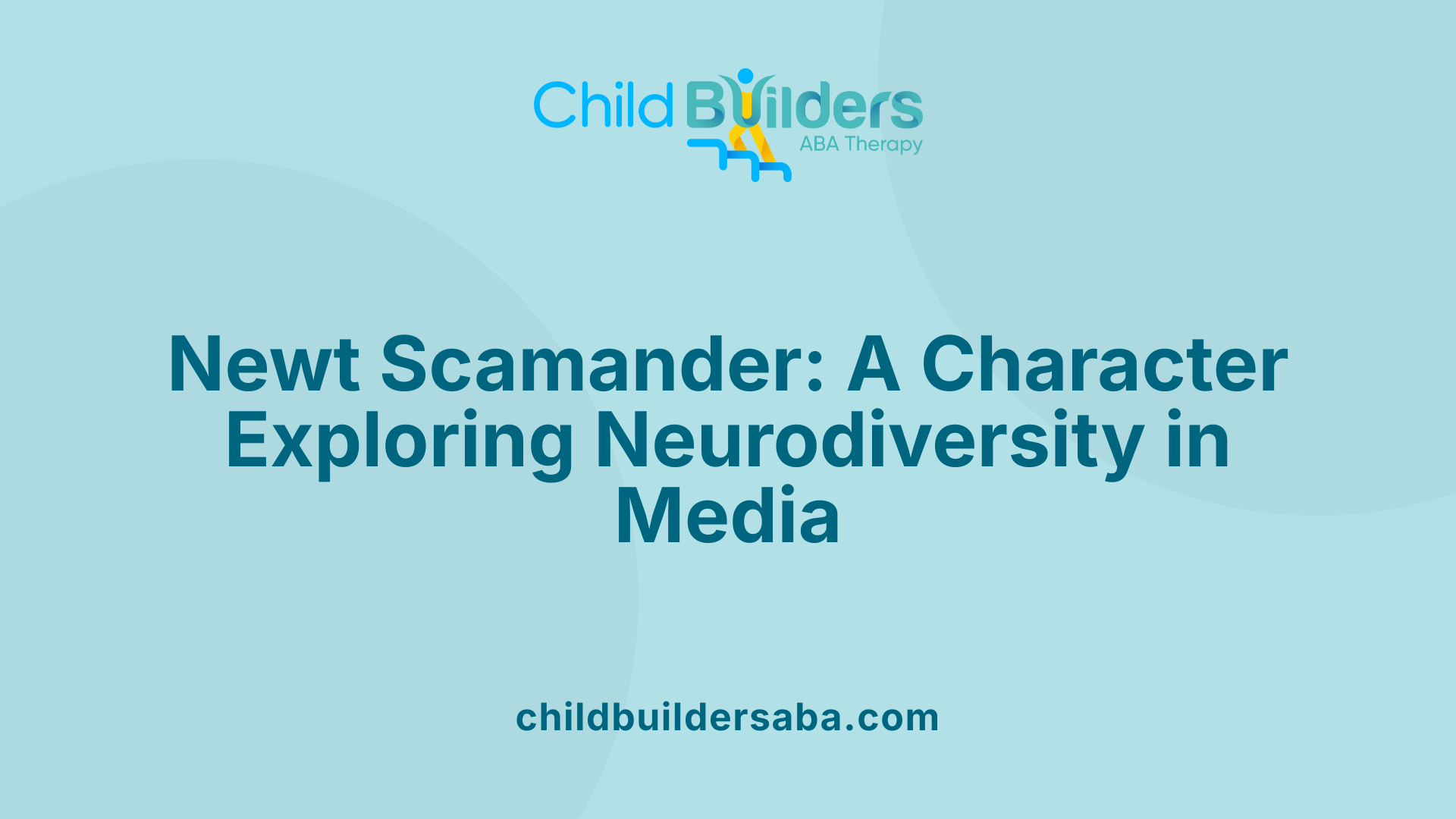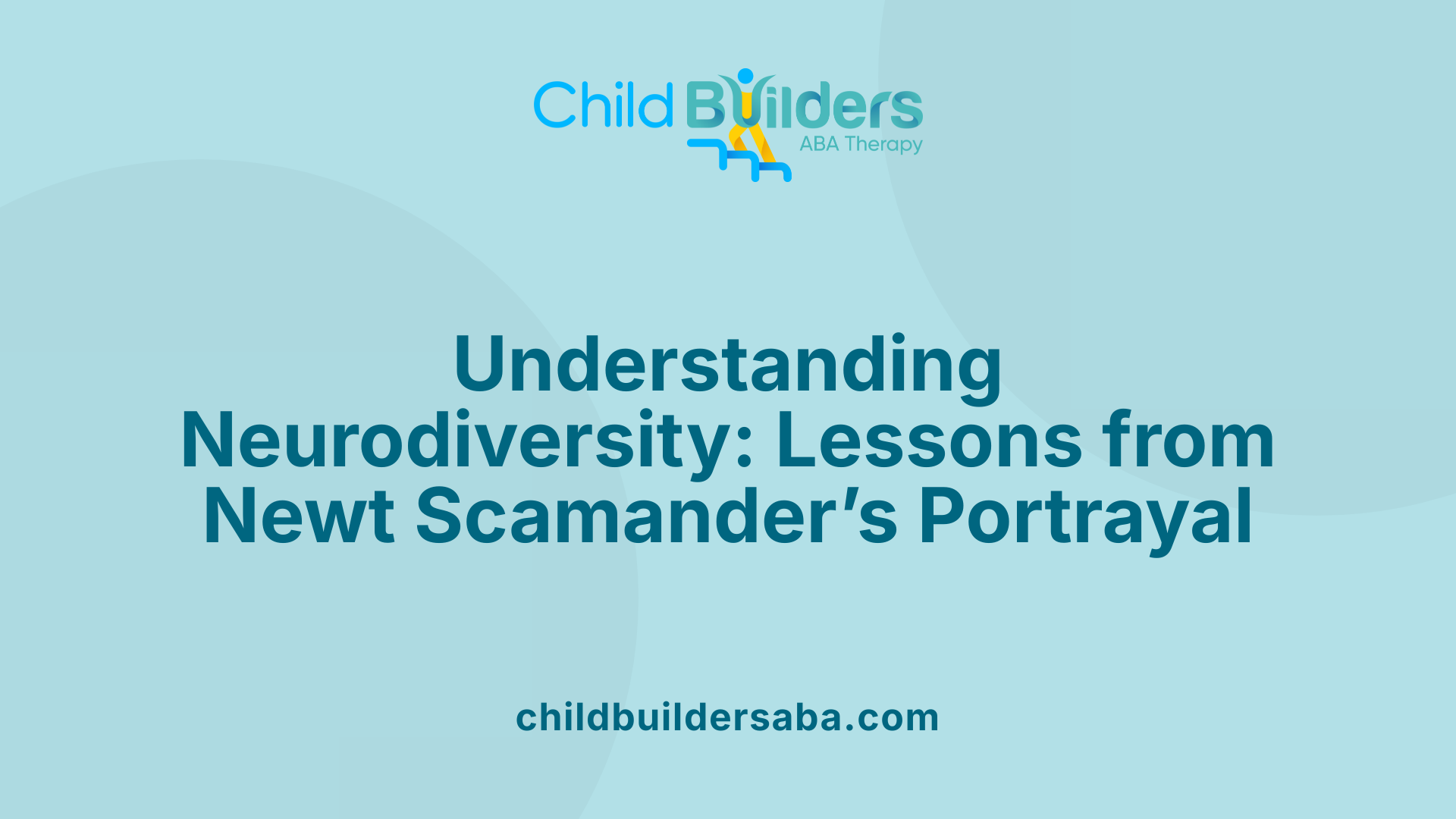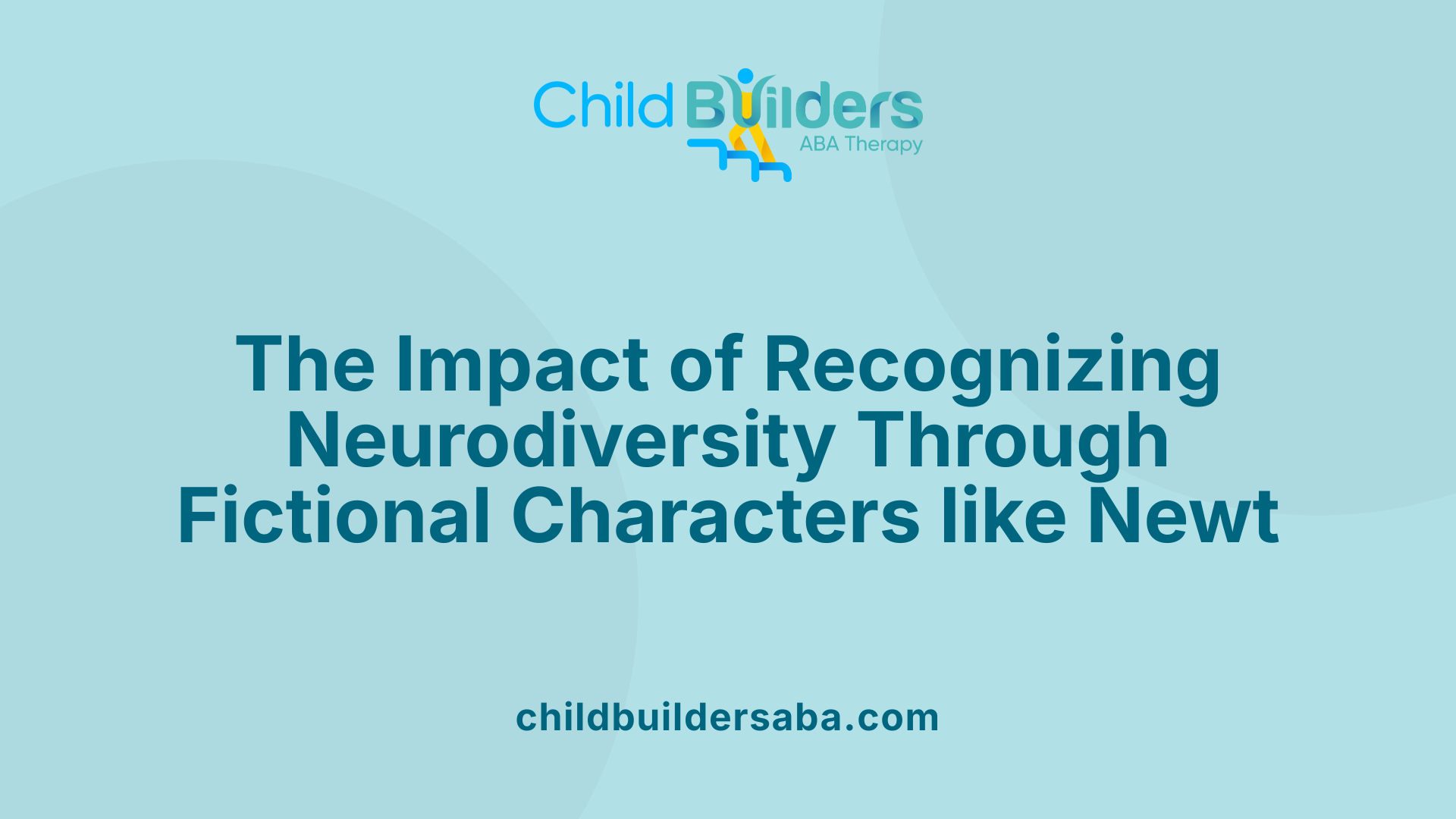Does Newt Scamander Have Autism?

Understanding Newt Scamander: Beyond the Wizarding World
Newt Scamander, the beloved magizoologist from the Harry Potter universe, has captivated fans with his unique personality traits and profound connection to magical creatures. As conversations about neurodiversity and representation grow, many wonder whether Newt's behaviors and characteristics could suggest that he is on the autism spectrum. This article explores his personality traits, media interpretations, and insights into how his portrayal contributes to broader conversations about neurodiversity in media.
Key Personality Traits of Newt Scamander as Portrayed
What are the key personality traits of Newt Scamander as portrayed in the films or books?
Newt Scamander is depicted as a gentle, compassionate, and introverted wizard deeply passionate about magical creatures. His character exudes kindness and empathy, often showing a nurturing attitude towards beasts that others might find frightening or difficult.
He tends to be socially awkward and exhibits eccentric behaviors; for example, he frequently fidgets, taps his wand repetitively, and speaks in a soft, monotone voice. These mannerisms and his reserved nature suggest traits that some interpret as consistent with autism spectrum tendencies.
Despite his quiet demeanor, Newt is highly intelligent, curious, and morally upright. His strong sense of purpose guides his actions, and he often shows humility, loyalty, and a protective instinct for those who are misunderstood or vulnerable.
Newt's personality combines a gentle, curious spirit with quiet resilience and moral integrity. His fascination with magical creatures and his preference for their company over human interactions highlight his individualistic and outsider characteristics, making him a deeply endearing and noble figure.
Traits such as kindness, empathy, introversion
Newt's kindness and empathy are central to his character. He genuinely cares for all creatures, regardless of how dangerous or misunderstood they are. His introverted nature means he prefers solitude or smaller groups, often lost in thoughts or focused on his interests, particularly his work with magical beasts.
Social awkwardness and eccentric behaviors
He exhibits behaviors like fidgeting and repetitive actions, which align with some autism traits. His shy demeanor and difficulty with eye contact further emphasize his social awkwardness. These traits contribute to his characterization as someone who finds social interactions challenging but remains dedicated to his passions.
Intelligence, curiosity, and moral integrity
Newt's sharp intelligence and insatiable curiosity drive his explorations and studies of magical creatures. His moral compass is clear: he strives to protect and understand rather than exploit, reflecting deep integrity.
Imaginary insights on autism representation
The media and fans have engaged in conversations about autism recognition through Newt's portrayal. Actor Eddie Redmayne, who plays Newt, expressed his belief that Newt might be on the autism spectrum, noting his mannerisms and behaviors like eye contact and social shyness.
He explained that, although the autism diagnosis was not available during the original character creation, these traits support the interpretation that Newt could be on the spectrum, aligning with broader discussions about autism awareness in media.
This portrayal has helped foster more inclusive conversations about neurodiversity, even if not explicitly diagnosed, emphasizing the virtues of understanding and acceptance.
| Trait Category | Description | Examples from Books/Films |
|---|---|---|
| Compassion & kindness | Deep care for magical creatures and others | Protecting misunderstood beasts |
| Introversion & eccentricity | Preference for solitude, social awkwardness | Fidgeting, monotone speech |
| Curiosity & intelligence | Passion for learning about magical beings | Research and nurturing creatures |
| Moral integrity | Strong sense of right and wrong | Protecting beasts and their habitats |
This nuanced portrayal invites viewers and readers to appreciate the richness of Newt’s character, possibly reflecting traits associated with autism, and encouraging wider acceptance of neurodiverse individuals.
Behaviors Potentially Associated with Autism Spectrum Disorder

Does Newt Scamander display behaviors that could be associated with autism spectrum disorder?
Many fans and analysts observe that Newt Scamander displays certain behaviors that might be connected to autism spectrum disorder (ASD). His profound fascination with magical creatures and his extensive knowledge about them suggest a narrow, intense interest, which is often characteristic of ASD. This intense focus could be interpreted as a restricted interest that provides deep satisfaction and companionship, common among individuals on the spectrum.
Beyond interests, Newt's social interaction patterns also draw attention. He tends to engage with others in unconventional ways, often seeming shy or reserved, and he occasionally struggles with social cues. His preference for solitude, combined with his difficulty in making eye contact, are traits that some interpret as aligning with ASD traits, particularly for high-functioning individuals.
Newt's mannerisms further support this perspective. He exhibits repetitive behaviors like tapping his wand and fidgeting. His speaking style is often in a soft, monotone tone, which can resemble typical communication styles seen in some autistic individuals. These behaviors and characteristics contribute to a portrayal that has resonated with discussions about neurodiversity.
However, it is crucial to recognize that these traits are interpretative. The character of Newt Scamander was not explicitly diagnosed with autism by the author or in official sources. J.K. Rowling has acknowledged the possibility of neurodiverse traits in him via a tweet, but she did not provide a clinical diagnosis.
Actor Eddie Redmayne, who portrays Newt, has publicly expressed his belief that the character might be on the autism spectrum, specifically mentioning Asperger’s syndrome — a diagnosis now encompassed under autism spectrum disorder. Redmayne pointed out that his observations of Newt’s mannerisms, eye contact, shyness, and reserved nature led him to this interpretation, which aligns with many autism traits.
Ultimately, while certain behaviors of Newt Scamander could be seen as suggesting ASD, these are speculative and based on interpretation rather than confirmed diagnosis. His character's complexity and unique traits have indeed sparked meaningful conversations about autism awareness and representation in popular media.
Media Portrayals and Fan Interpretations of Neurodiversity

How do media portrayals and fan theories interpret Newt Scamander's neurodivergent traits?
Media portrayals and many fan theories often view Newt Scamander as a character exhibiting traits associated with neurodiversity, especially autism. This perspective arises from observations of his social interactions, interests, and mannerisms.
Newt is depicted as socially awkward, struggling with eye contact, and exhibiting a remarkable focus on magical creatures, which are traits that resonate with common experiences of autism. His repetitive behaviors, such as tapping his wand and fidgeting, along with speaking in a soft, monotone voice, further contribute to these interpretations.
While J.K. Rowling has acknowledged the possibility that Newt might have autism in a tweet and has spoken about people and animals like him, she did not explicitly diagnose him. Actor Eddie Redmayne, who portrays Newt, supports this view, suggesting that Newt could be on the Asperger’s spectrum based on his mannerisms and behavior in the films. Redmayne pointed out that qualities like his reserved nature, walking style, and difficulty with social cues align with traits commonly attributed to autism.
Fans also see Newt as embodying many autistic traits due to his intense interest in magical creatures and his social discomfort. These interpretations help promote understanding and acceptance of neurodiverse individuals by showcasing a character who is caring and capable despite—or because of—his differences.
This broader reflection on Newt’s character through media and fan lenses has contributed significantly to conversations about neurodiversity in popular culture. Although not officially diagnosed, the portrayal encourages viewers to view neurodivergent traits through a positive and relatable light, fostering a more inclusive narrative.
| Aspect | Description | Source |
|---|---|---|
| Traits | Social awkwardness, intense focus, sensory sensitivities | Fans & Media |
| Actor Insight | Belief that Newt may be on the autism spectrum | Eddie Redmayne |
| Media Recognition | Stirred conversations about autism representation | Media & Fans |
| Significance | Promotes understanding, acceptance, and diversity | General Analysis |
Through nuanced portrayals and engaged fan communities, Newt Scamander stands as an example of how media can reflect and foster conversations about neurodivergence, contributing positively to awareness and acceptance.
Insights into Neurodiversity and Media Representation

What insights can be gained from Newt Scamander’s personality about neurodiversity in media representation?
Examining Newt Scamander’s character reveals important lessons about how neurodiverse individuals can be portrayed in media. Newt exhibits traits such as intense focus, meticulousness, and a passion for magical creatures. These qualities show that having deep interests and expertise can be strengths, challenging outdated stereotypes that might view neurodiverse traits negatively.
His social behaviors—difficulty with eye contact, shyness, and awkwardness—reflect common characteristics associated with autism spectrum traits. These behaviors emphasize that social differences are normal variations rather than flaws. Recognizing such traits in a beloved character encourages viewers to accept neurodiversity as part of human variation.
Redmayne’s portrayal, supported by his own comments, underscores that these traits are natural and non-defining of a person’s value. By presenting Newt as a complex, capable individual who is central to the story, media can promote a more nuanced understanding of neurodiversity.
This representation fosters acceptance and empathy, breaking down stereotypes and encouraging society to view neurodiverse traits as unique strengths. In sum, Newt Scamander’s character demonstrates how media can responsibly depict neurodiverse characters—highlighting diversity, promoting understanding, and inspiring greater inclusion.
Conclusion: The Significance of Recognizing Neurodiversity in Fictional Characters
 Many traits exhibited by Newt Scamander in the Harry Potter universe resonate with characteristics commonly associated with autism. He experiences difficulty with social interactions, struggles to make eye contact, and displays a deep, obsessive interest in magical creatures. These behaviors are complemented by mannerisms like fidgeting, repetitive actions such as tapping his wand, and speaking in a soft monotone voice.
Many traits exhibited by Newt Scamander in the Harry Potter universe resonate with characteristics commonly associated with autism. He experiences difficulty with social interactions, struggles to make eye contact, and displays a deep, obsessive interest in magical creatures. These behaviors are complemented by mannerisms like fidgeting, repetitive actions such as tapping his wand, and speaking in a soft monotone voice.
The portrayal of Newt has prompted discussions about neurodiversity and how it can be represented in fictional characters. Actor Eddie Redmayne has publicly expressed his belief that Newt might be on the autism spectrum, specifically mentioning Asperger’s syndrome—a term now subsumed under autism spectrum disorder. Redmayne observed that qualities like his mannerisms, walking style, and reserved nature align with traits often associated with autism.
While these interpretations are compelling, it is important to recognize that J.K. Rowling, the series’ creator, has acknowledged the possibility but has not confirmed a diagnosis. Since autism was not understood in the 1920s, when the story is set, any label remains speculative. The discussion, however, helps foster greater awareness and acceptance of neurodiversity.
Fans and observers see themselves in Newt’s traits, which can promote empathy and understanding. Recognizing neurodiversity in characters—whether explicitly diagnosed or not—baves the way for more inclusive storytelling and representation in media.
| Trait/Characteristic | Possible Autism Connection | Additional Context |
|---|---|---|
| Difficulty with social interactions | Yes | Seen in Newt’s shy and reserved behavior |
| Eye contact issues | Yes | Portrayed as a cultural trait of his personality |
| Intense interest in a subject | Yes | Focused on magical creatures |
| Repetitive behaviors | Yes | Tapping wand, fidgeting |
| Speak in monotone | Yes | Soft, monotone speech pattern |
Understanding Newt Scamander through this lens underscores how fictional characters can reflect real-world neurodiversity, encouraging dialogue and broadening representation.
A Broader Perspective on Neurodiversity in Fiction
In exploring whether Newt Scamander has autism, it becomes clear that while his behaviors and personality traits align with characteristics often associated with autism spectrum disorder, there is no definitive diagnosis or confirmation from official sources. His portrayal offers an important opportunity to reflect on the diversity of human neurocognitive profiles and emphasizes the importance of representation that normalizes neurodiversity. Both fans and creators like Eddie Redmayne recognize that these traits can symbolize the unique ways individuals experience the world. Ultimately, Newt stands as a compassionate, multidimensional character whose personality opens meaningful dialogues about acceptance, understanding, and celebrating neurodiverse individuals in fiction and beyond.
References
- Is Newt Scamander Autistic? Exploring the Evidence
- Eddie Redmayne Says Newt Is a Hero with Autism - MuggleNet
- Eddie Redmayne Thinks Newt Scamander In 'Fantastic Beasts' Has ...
- The Three Types of Representation in Media
- On Newt Scamander And Autistic Representation
- In Brightest Day: Newt Scamander and Autism
- Eddie Redmayne thinks Newt Scamander is on the autism spectrum
- Autism and Restricted Interests - Astra ABA





































































































